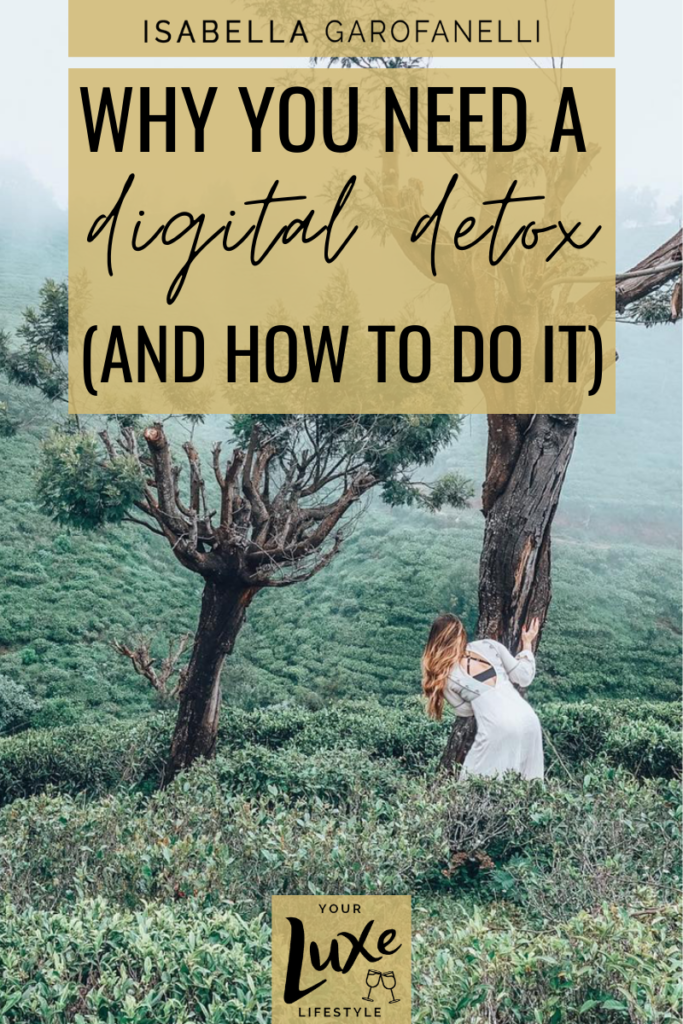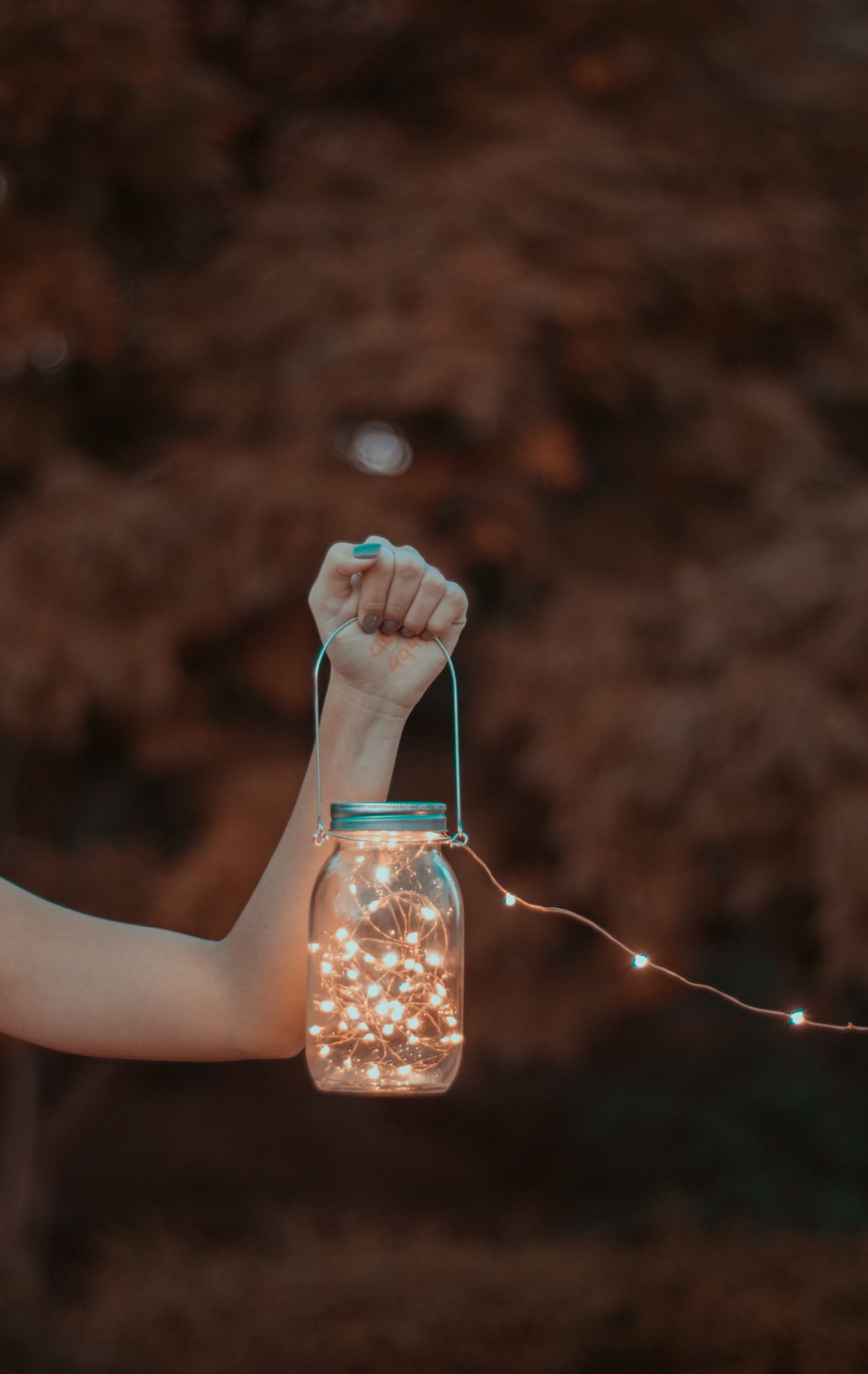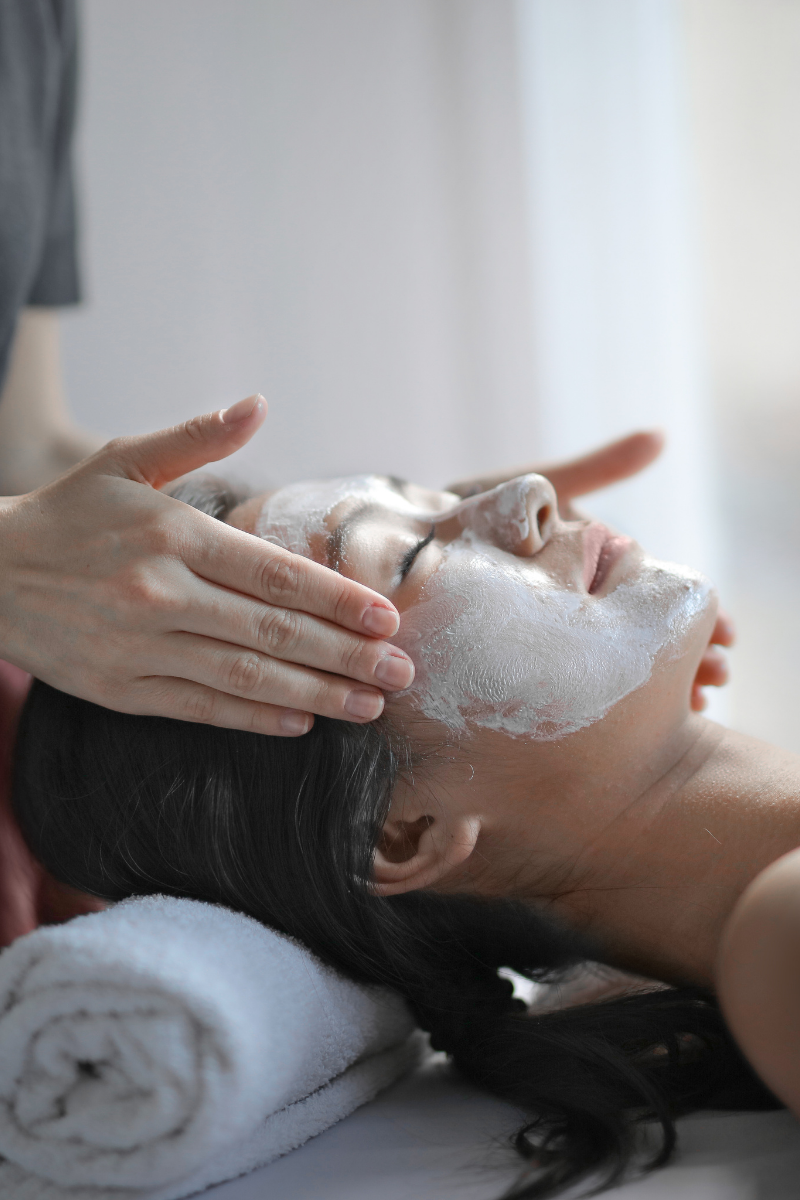Studies show that the average American adult spends 3-4 hours per day on their phone; that’s about 53 days per year. If you find this information as shocking as I do, you might be ready to consider a digital detox. There are numerous benefits to limiting your screen time, from an improved attention span to lower stress levels and better sleep. However, in today’s society it’s simply not feasible to live your life off of the grid. As an influencer and content creator, my career is reliant on technology but I do make sure to undergo a digital detox from time to time to ensure that my brain stays sharp and balanced. Here’s what you need to know about doing a digital detox, and how to make it work for you.


What Is a Digital Detox?
The term “digital detox” usually refers to a period of time during which a user completely refrains from using digital devices such as smartphones, computers and the like. Digital detoxes are becoming increasingly popular in response to society’s overuse of technology. However, some use this term in order to refer to a social media or internet detox, whilst still using limited apps for activities such as listening to music, making notes, photography or fitness.
Many experts agree that ongoing moderation of device usage is the most effective way to digitally detox. There’s certainly something to be said for this, but I’ve definitely found that going completely cold turkey for short periods of time is a really effective way to kickstart healthier digital habits.


Signs You Need to Do a Digital Detox
- You’re stressed out
- You’re struggling to sleep
- You’re suffering from anxiety
- You can’t seem to put your phone down – even when in the company of friends and family
- You check your phone constantly
- You feel uncomfortable without your phone
- Scrolling through social media often makes you feel inadequate, or as though you’re missing out on something
- You obsess over likes, comments and views
- Your performance at work is suffering because you’re constantly using your phone
Remember, your digital devices should never cost you more than money! If you’re glued to your screen and it’s affecting your health, happiness or relationships then it’s definitely time for a break.


Reasons to Do a Digital Detox
Quality Time With Your Loved Ones
It’s pretty hard to spend quality time with loved ones when you’re on your phone 24/7. In fact, this can really rub people up the wrong way. A digital detox helps you maintain relationships with your loved ones and enjoy meaningful quality time together without any nagging distractions.
Self Care
When you’re alone, it’s all too easy to spend your time scrolling. A digital detox is a golden opportunity to practice self care and put yourself first. Just because you’re alone doesn’t mean it’s not important to be present in the moment. Instead, why not use this time to do a DIY facial or focus on improving your mental wellbeing?
Better Sleep
It’s well-established that overuse of digital devices has a negative impact on both the quantity and quality of your sleep. If that’s not a good reason to do a digital detox, then I don’t know what is. Studies show that the blue light from cell phones and laptops disrupt the body’s circadian rhythm, making it difficult to achieve a blissful night’s sleep. This in turn has a number of negative health effects.
Improve Your Attention Span
Be honest: how often do you check your phone throughout the day? It can be difficult to focus when your phone is pinging 24/7, so switching it off for a few hours can definitely help to boost your concentration.
De-Stress
18% of adults cited tech as a major cause of stress in their lives. Too much time online can certainly cause overwhelm. In fact, many sociologists note that the phenomenon of “information overload” is becoming increasingly common. Whilst the internet is an undeniably useful research tool, there’s just so much (often conflicting) information online that it can all get too much sometimes. When this happens, the best thing to do is switch off for a while.
Better Work-Life Balance
Have you ever started to wind down for the evening, only to be hit with a barrage of work-related emails? The next thing you know, you’re working late into the night on something that could probably wait until tomorrow. I’m all for hustling hard, but a healthy-work life balance is important and it’s pretty difficult to maintain when you’re glued to your phone 24/7 – particularly if you only have one phone for both work and personal use.
Confidence
President Theodore Roosevelt said that “comparison is the thief of joy” and social media has certainly proved him right. Social media leads many of us to compare our real lives to others’ highlight reels. We create impossible standards that real life just can’t measure up to. Taking some time away from your phone and computer can definitely help you to readjust your headspace and rediscover your confidence.


Tips for Doing a Digital Detox
Define the Parameters of the Detox
Before you begin, you need to decide the extent of your detox. You probably can’t go completely off the grid forever, so decide how much you want to detox and for how long. You could turn off all of your devices for a weekend, or take a few days off of social media. Alternatively, you might want to limit your smartphone use to just an hour per day, or pledge to abstain from technology after a certain time each evening. There’s no right or wrong way to go about it – just choose what you think is best for you.
Remove Distractions
If you’re doing a partial detox, it’s important to remove as many distractions as possible. For example, if you’re still using your phone for offline functions such as photography, make sure to switch on airplane mode or turn off push notifications so that you’re not tempted to start scrolling. You could also temporarily delete your social media apps or use blocking apps to help you resist late-night Instagram temptation.
Keep Yourself Busy
We often use technology to fill a void, so keep yourself busy. Go for a walk, read a book or do some yoga. It’s much easier to forget about your phone when you’re busy enjoying other activities, so take this time to improve your body and mind.
Write a Digital Detox Journal
Recording your digital detox journey can really help you track your progress and see how much you’ve learned. It’s also a great way to express yourself when you’re struggling with the process. When your thumbs are itching to start scrolling again, grab your journal instead and write out your frustrations. You could also write down the reasons you’re doing this digital detox in the first place, and that should help you to remain on-track.


For more on wellness, check out these easy ways to boost your immune system or these life-changing skincare hacks.




Comments +